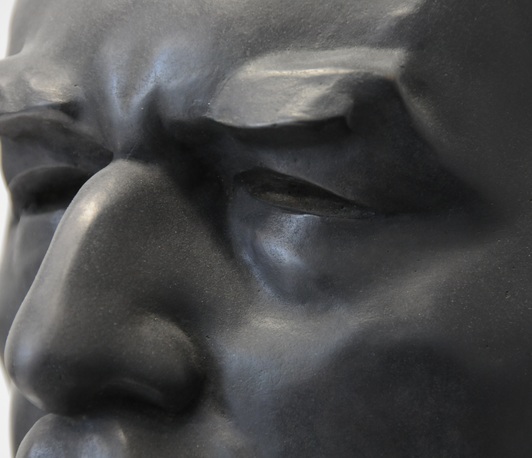Form, Style, Principles: Art Historical and Theoretical Reflections – A Conference of the Wölfflin Edition
Conference
- Event location: Zurich (CH) and online
- Beginn: 18.11.2024
- Ende: 20.11.2024
- Vortragende(r): Conference
- Ort: Online / University of Zurich; Aula + Lichthof
- Kontakt: freiberg@biblhertz.it

Against this backdrop, the name Heinrich Wölfflin resurfaces in both historiographical and theoretical accounts. The newly published critical edition of his collected works, available both digitally and in print, invites us to take a fresh look at both longstanding and urgent concerns of art history, thinking about and beyond Wölfflin. His claims regarding the historicity of both form production and its perception are newly relevant not only concerning the burgeoning “age of technical reproduction” of artworks but also in light of broader media histories and changing media ecologies in the present. In-depth analyses of his drawing practice and his use of language resonate with reflections on the epistemic role of sketching in scientific production and on the performative aspects of scholarship and teaching. In times of post-digital image production and the proliferation of media platforms, Wölfflin’s insistence on the indispensable value of a visual education raises the question of the specific responsibility of art history and visual studies on a broader horizon, and their ability to reach a much wider audience, confronting issues such as human vs non-human image production, manipulation, and instrumentalization. From a historical perspective, reconstructions of the geneological circumstances of Wölfflin’s writings provide insight into the social networks, institutional infrastructures, museum landscapes, and transnational exchanges that contributed to shaping and repeatedly revising conceptual models.
Furthermore, the political and ethical implications of practicing art history as a science of form emerge ever more clearly from the history of formalism as a contested methodology, after decades of polemics against its alleged essentialist and apolitical nature. Its association with the concept of norms and with various ideologies, but also with patterns of resistance, forms of social communication, and of individual existence are telling examples of the fundamental non-neutrality of both form and its study. Even quality judgments in art, the analysis of artistic techniques, the contemporary relevance of information design and coding may have far-reaching consequences.
What is the current understanding of Wölfflin’s position within the history of formalism? Have recent debates affected the conservative traits usually associated with the author? In what ways can a close reading of a seemingly canonical author still suggest a productive estrangement and provoke new questions from today’s perspective? Can a rethinking of the notions of form and formalism itself become a key to a more inclusive reflection on methodology in the light of contemporary challenges facing the humanities?
In this colloquium, speakers from various backgrounds will engage with these and related questions discussing historical, current and emerging issues in understanding form and formalism.
Please follow the event on ZOOM:
https://uzh.zoom.us/j/63469000384?pwd=IHZvlvauFbiADKJKlCqIqqxHOp7Ebm.1
Meeting-ID: 63469000384
Passcode: 614377
PROGRAM
Monday, Nov. 18
15:00–15:15
Welcome Tristan Weddigen (Univ. of Zurich), Oskar Bätschmann (Univ. of Bern), Joris van Gastel (Univ. of Zurich)
Panel I
15:15–15:30 Oskar Bätschmann
Introduction
15:30-16:15 Ute Engel (Martin Luther Univ. Halle-Wittenberg)
Cross-examinations. Heinrich Wölfflin and His Contemporaries or: The Emergence of Formalism as a Productive Intellectual Debate c. 1885 to 1915
16:15-16:45 Break
Panel II
16:45-17:00 Tristan Weddigen
Introduction
17:00–17:45 Maria Stavrinaki (Univ. of Lausanne)
Postwar Patterns: A False Formalism
17:45–18:30 Whitney Davis (Univ. of California)
Queering Formalism
19:30 Dinner with Speakers
Tuesday, Nov. 19
Panel III
9:00–9:15 Giovanna Targia (Univ. of Zurich / KHI Florenz)
Introduction
9:15–10:00 Mitchell B. Frank (Carleton Univ.)
The Old and the New in the New Art History
10:00–10:45 Caterina Caputo (Univ. of Venice)
Form(alism) and Beyond: Herbert Read and the ‘Meaning of Art’
10:45–11:15 Break
Panel IV
11:15–12:15 Harald S. Liehr (Schwabe Verlag), Elena Spadini (Univ. of Basel), Elisa Bastianello (Bibliotheca Hertziana), Yann Stricker (Univ. Library Zurich)
Round table: Shaping the future of Digital Scholarly Editions - but how?
Chair: Christine Grundig (Univ. of Zurich)
12:15–13:15 Lunch
13:15–14:15 Leonie Wohlgemuth (Univ. of Zurich) , Sven Meier (Univ. of Zurich)
Site Visit: Wölfflin-Zimmer, Wölfflin busts
Panel V
14:15–14:30 Teresa Ende (Univ. of Zurich)
Introduction
14:30–15:15 Megan Luke (Univ. of Tübingen)
What the Eye Does Not See: On Photographic Facture
15:15–16:00 Andrea Pinotti (Univ. of Milan)
Style Between Individuality and Dividuality: Wölfflin and the Neural Style Transfer
16:00–16:30 Break
Panel VI
16:30–16:45 Tobias Teutenberg (Bibliotheca Hertziana)
Introduction
16:45–17:30 Larisa Dryansky (Sorbonne Univ.)
Asger Jorn’s Formalism
17:30–18:15 Simon Baier (Univ. of Oslo)
From Form to Format
18:45 Nina Arnold (Univ. of Zurich)
Site Visit: The Ganymede, Bürkliplatz
19:30 Dinner with Speakers
Wednesday, Nov. 20
Panel VII
10:00–10:15 Joris van Gastel
Introduction
10:15–11:00 Hans Christian Hönes (Univ. of Aberdeen)
Formalism, Disciplinarity and the Future of Art History
11:00–11:45 Claudia Blümle (Humboldt Univ. of Berlin)
Seeing is Relative. Heinrich Wölfflin in the Museum
Final Discussion
11:45–12:30 Evonne Levy
Wölfflin in the Rear View Mirror
12:30–13:15 General Discussion
Chair: Tristan Weddigen
13:15 Lunch Lichthof
Scientific Organization: The team of the Wölfflin edition project (https://www.woelfflin.uzh.ch/de.html / woelfflin@khist.uzh.ch )